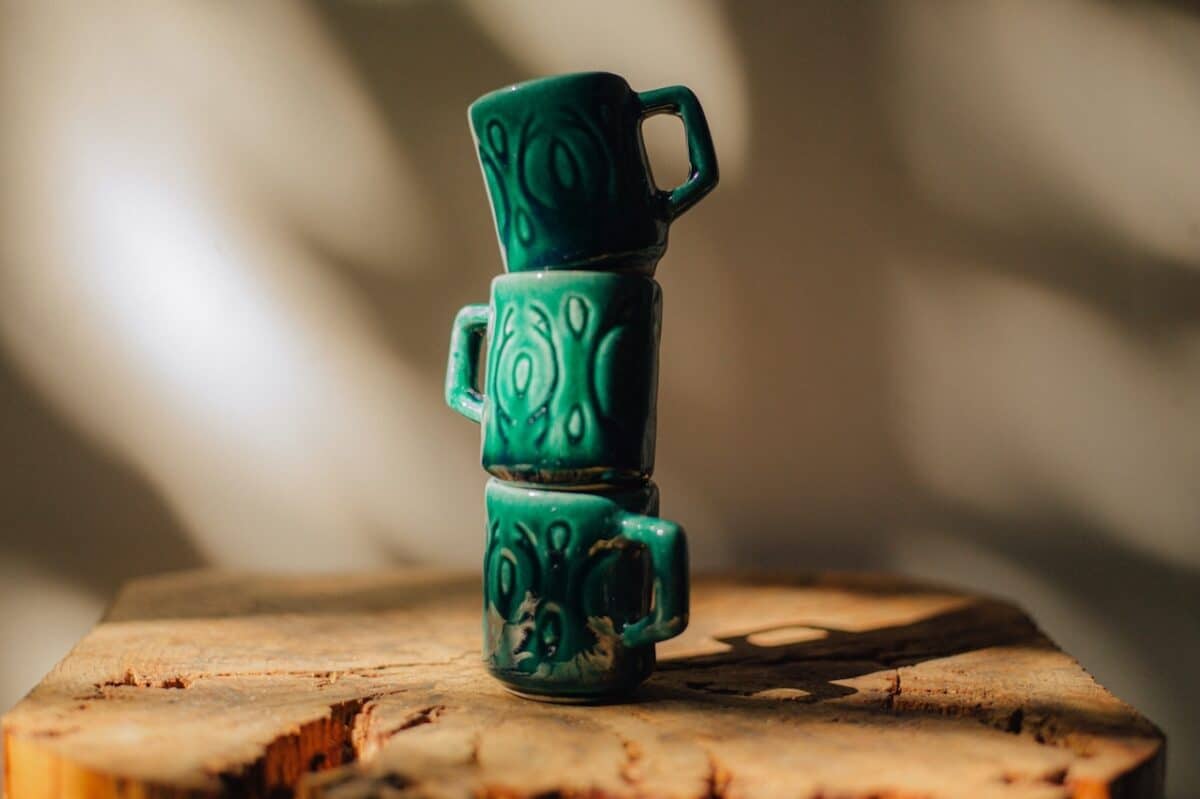

This therapist directory is offered in partnership with BetterHelp. If you sign up for therapy after clicking through from this site, HelpGuide will earn a commission. This helps us continue our nonprofit mission and continue to be there as a free mental health resource for everyone.
Need to talk to someone now? Find a crisis helpline
If you're a BetterHelp therapist with questions about your directory listing, please contact therapists@betterhelp.com
If you have a drinking problem, recovery support groups like Alcoholics Anonymous can be helpful in staying sober. Discover how these groups provide hope, strength, and encouragement on the road to sobriety.

You don’t have to face a drinking problem alone. A peer support group for alcohol addiction, otherwise known as a mutual self-help group or recovery support group, can be a crucial source of encouragement and guidance. These groups are scheduled gatherings of people who want to overcome their alcohol abuse issues and develop healthier habits. The meetings might be online or in person, and a group facilitator often guides participants through discussions or activities.
Although recovery support groups are a nonclinical approach to alcohol abuse and addiction, they can come with many benefits. A welcoming group can make you feel more connected and less alone in your recovery journey. The empathy and encouragement you receive from group members can often both comfort and inspire you. Hearing the experiences of others may reduce any sense of shame you’re feeling and enhance your self-efficacy or self-belief.
The benefits of peer support groups can go beyond emotional support. You may also discover practical coping skills to help tame your urges to drink and manage stress. All of these factors can contribute to your recovery from alcoholism or a drinking problem.
Research shows a correlation between participation in support groups like Alcoholics Anonymous and reduced drinking and cravings. However, because peer support is often combined with other interventions, such as psychotherapy, it can be difficult for researchers to assess exactly how much recovery support groups contribute to a person’s recovery.
The actual effectiveness of a peer support group like AA may depend on many factors, including:
Attendance. People who attend meetings frequently and consistently may see better results than those who only attend occasionally.
Engagement and involvement. You increase your chances of success if you participate in group activities, make a close friend, or take on a specific role or responsibility in the group.
Professional treatment. Undergoing professional treatment while attending a support group can help you achieve your goals.
Addiction severity. If your addiction is severe, you might take longer to recover than someone with a milder addiction. In addition, co-occurring conditions, like depression, can hinder your motivation to attend meetings and engage with others.
Goal. Not everyone who joins a mutual help group has the same goal. Perhaps you simply want to reduce your drinking rather than achieve lifelong abstinence.
As the name implies, peer support groups involve meeting with other people who are either coping with alcohol abuse and addiction or have overcome it. Members of a peer group aren’t necessarily professionals; however, they do have personal experience.
Alcohol counseling sessions are run by professionals who have an educational background or training in handling addiction. A counselor might use cognitive-behavioral therapy or other clinical approaches to help you cope with your substance abuse issues.
BetterHelp is an online therapy service that matches you to licensed, accredited therapists who can help with depression, anxiety, relationships, and more. Take the assessment and get matched with a therapist in as little as 48 hours.
Take Assessment HelpGuide is user supported. We earn a commission if you sign up for BetterHelp’s services after clicking through from this site. Learn morePeer recovery support groups come in different forms and have different advantages and disadvantages. To find one that suits you, ask yourself the following questions:
[Read: Support Groups: Types, Benefits, and What to Expect]
Keep in mind that your needs and preferences are unique. A recovery support group that helped a friend or family member find sobriety might not necessarily work for you. However, through a little research and trial and error, you may find a peer support group that makes you feel comfortable and empowered.
Alcoholics Anonymous or AA is the most widely available self-help group for alcoholics in treatment and recovery. The organization has more than 120,000 groups in roughly 180 countries.
The group’s approach to sobriety centers on the 12 Steps, spiritual principles that members apply to their daily lives. These steps include:
Members of AA are also encouraged but not required to engage with a sponsor. A sponsor is someone who has made progress in their own journey to recovery. This person can be a continuous source of inspiration and guidance, someone to lean on as you strive to stay sober.
A sponsor can share what they’ve learned, answer your questions, and lend an empathetic ear. A 2013 study found that having a sponsor contributed to long-term abstinence.
AA meetings are free to attend and regularly held in community spaces, such as churches and treatment centers. Online meetings are also an option.
During an AA session, a member serves as chair and is tasked with opening the meeting, welcoming new members, and selecting a topic for discussion. The exact format of the meeting can vary. After a meeting, members may often stick around and socialize with one another.
Members of AA and other 12-step programs often enjoy the amount of social support they receive during the sessions. Because the meetings are widely available, most people find them easily accessible.
On the other hand, the 12-step philosophy doesn’t appeal to everyone. Some people would rather avoid the spiritual and religious aspects of the program. In other cases, a person might simply disagree with the group’s goal of total abstinence.
For beginners, AA can be a useful introduction to support groups. However, if you attend a few sessions and feel like it’s not for you, there are other peer group options for you to explore.
[Read: Support Groups: Types, Benefits, and What to Expect]
If AA doesn’t appeal to you, or you want to engage with additional mutual help groups, you can explore the following options. Each group follows a different format and philosophy, and they offer varying levels of availability.
However, they all provide a similar benefit—social support for individuals looking to overcome alcohol abuse or addiction.
Like AA, Dual Recovery Anonymous is a 12-step program. However, it caters to people who want to tackle alcohol abuse as well as co-occurring mental health issues.
Co-occurring disorders can include conditions like depression or anxiety, which can worsen substance abuse and make it harder to seek help. In some cases, the co-occurring mental health issue leads a person to abuse alcohol, but the reverse can also be true. No matter which came first—the mental health issue or the drinking problem—it’s important to treat both of the problems simultaneously. The desire to do so is necessary if you want to join DRA.
[Read: Dual Diagnosis: Substance Abuse and Mental Health]
DRA has many similarities to AA, so if the 12 steps aren’t for you, DRA may not be the right choice, either. Another potential downside is the limited availability of meetings. Meetings are not as widely available as the sessions run by AA. However, the sessions may be more comfortable than AA if you want to engage in discussions that revolve around mental health.
Secular Organizations for Sobriety (SOS) is an organization that offers a nonreligious path to long-term sobriety. It considers addiction recovery to be a separate issue from spiritual beliefs.
The organization takes the Sobriety Priority approach to overcoming addiction. This cognitive strategy envisions two types of cycles:
The cycle of addiction involves a chemical need, a learned habit of chronic alcohol use, and a denial of the addiction.
The cycle of sobriety involves regular acknowledgment of the addiction, acceptance of the addiction, and the prioritization of sobriety.
SOS members aim to support one another in escaping the first cycle and establishing the second cycle. SOS groups are autonomous, so the format of the meetings and structure of the group can vary. However, all the groups offer peer support and a secular atmosphere. Meetings can be hard to find, but the official site offers a listing of online groups.
SMART Recovery is another program that deemphasizes the role of spirituality in handling addiction. The members focus on achieving self-empowerment and behavioral change through a four-point program, including:
Meetings are 60 to 90 minutes long and take place either online or in person. Trained volunteers or professionals lead the sessions, and members may benefit from group discussions and lessons on different kinds of coping tools. The sessions can ultimately help you create a recovery plan with actionable steps.
Smart Recovery emphasizes psychoeducation and the development of self-management tools, so some people find the sessions to be slow-moving and repetitive. Still, the results of a 2018 study suggest that SMART might be just as effective as 12-step groups.
Although the sessions are not as numerous as AA meetings, SMART has an online tool for finding recovery meetings near you.
Some research suggests that women who are recovering from alcohol abuse and dependency may have differing needs from their male peers. Women for Sobriety (WFS) is the first national organization to focus specifically on the needs of alcoholic women. Like SMART Recovery, it appears to be as effective as 12-step programs.
Women for Sobriety is based on the New Life Program, a series of 13 statements that encourage emotional and spiritual growth. Some of the statements include:
The program also recognizes six levels of recovery, ranging from acceptance of having an addiction to prioritizing emotional and spiritual growth.
WFS offers face-to-face groups in parts of the U.S. and Canada. Meetings take place at least weekly and range from 60 to 90 minutes in length.
During each meeting, six to 10 women take part in a group discussion that’s led by a certified facilitator. Even though in-person meeting availability is limited, WFS also has phone support, online chat meetings, and a 24/7 message board.
As you explore your peer support options, keep in mind that you don’t have to settle for just one path to addiction recovery. You might find that a mixed approach that combines professional treatment with different mutual help groups is best for you. With the right resources, you can achieve freedom from addiction and find a sense of community while doing so.
Millions of readers rely on HelpGuide.org for free, evidence-based resources to understand and navigate mental health challenges. Please donate today to help us save, support, and change lives.
Donate to HelpGuide.org today